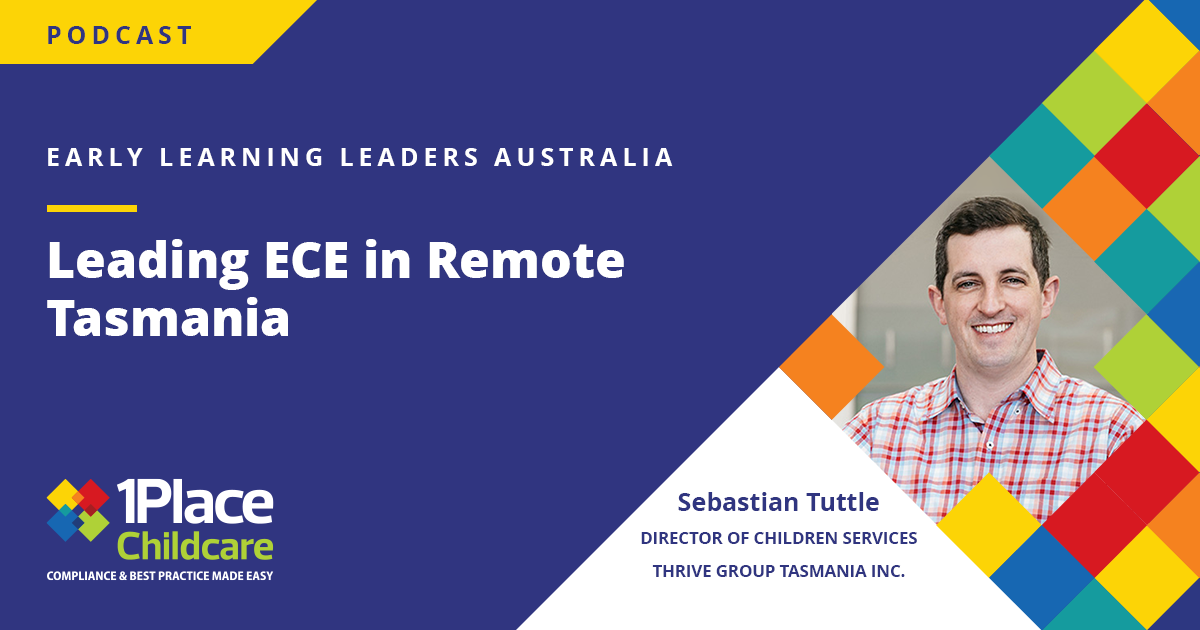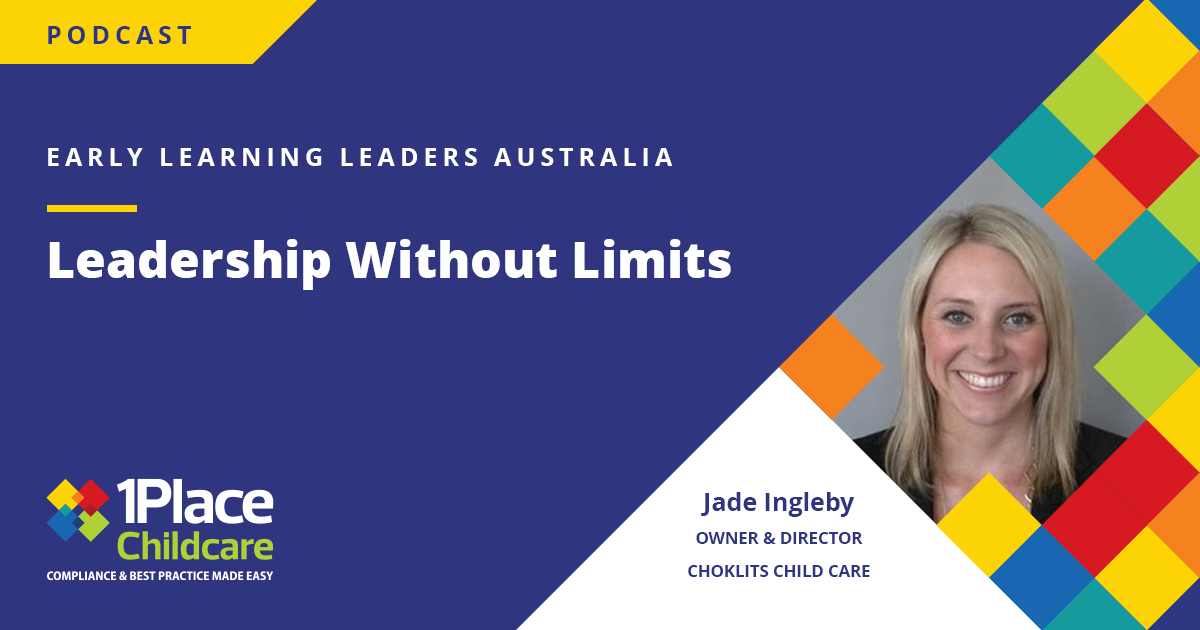
In this episode, Sebastian Tuttle of Thrive Group shares his journey from science to early childhood leadership and how he and his team delivers quality services in remote Tasmania.
Our Expert Sebastian Tuttle
Sebastian Tuttle is the Director of Children’s Services at Thrive Group, a not-for-profit early education provider operating across rural and regional Tasmania. With over a decade of experience in the sector, Sebastian has worked his way from outside school hours care educator to center leader, manager, and now director. Originally from far north Queensland and one of ten children, Sebastian’s path to early childhood education began when he cared for his sister’s children for six years after deciding against pursuing medicine. His unique background in anatomy and neuroscience, combined with his hands-on experience in remote service delivery, has shaped his innovative approach to early childhood education. Sebastian is passionate about community-driven solutions, workforce development, and ensuring quality education reaches Tasmania’s most isolated families.
About Thrive Group
Thrive Group (formerly NCCN) is a not-for-profit early education provider committed to delivering high-quality early learning and outside school hours care services across rural and regional Tasmania. Operating services in some of Australia’s most remote locations, including Flinders Island and Queenstown, Thrive Group utilizes a centralized business model that allows services to focus on children and families while head office manages compliance, administration, and support. The organization works closely with government, schools, councils, and community groups to establish and maintain vital childcare services in areas where commercial operators cannot sustain operations. Thrive Group’s mission extends beyond service delivery to include workforce development, community partnership, and advocacy for early childhood education in rural and remote communities.
In this episode we cover:
– Delivering early education in remote Tasmanian communities
– Centralised models to support rural providers
– Addressing workforce gaps with local solutions
– Sustainable and future-ready regional services
A sneak peek inside the episode:
“It has to be community-driven. You can’t bring in people because, you know, unless they love the lifestyle, they’re not going to stay for however long, you know, more than a year or two.”
Listen to the conversation:
Subscribe to us on Spotify or iHeart
Watch the conversation:
‘




